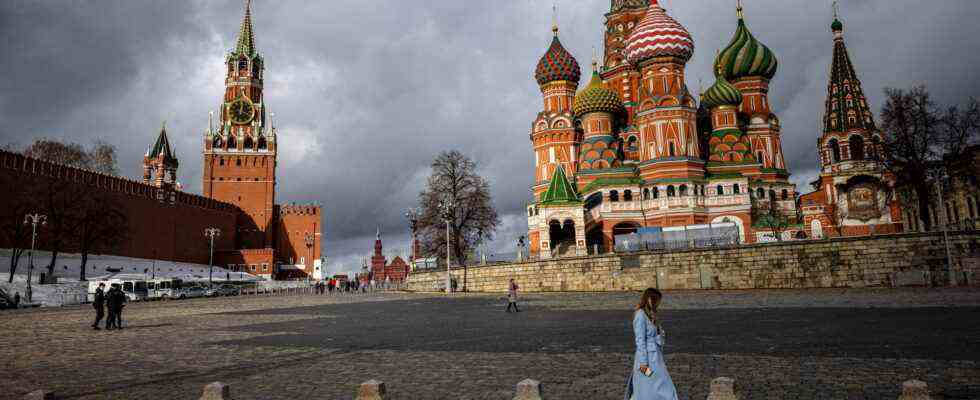Status: 02/23/2022 11:28 am
The EU is planning new sanctions against Russia in the Ukraine crisis. They are a popular tool of European foreign policy. But what effects do sanctions actually have on political developments?
Belarus, Mali, DR Congo, China, Syria, Libya, North Korea, Iran: The list of countries against which the European Union has imposed sanctions could be extended. The EU also imposed measures against Russia in 2014 in response to the illegal annexation of the Ukrainian peninsula of Crimea. The EU foreign ministers have been discussing new, more extensive sanctions since Tuesday. The pressure on Russia should be increased.
The chances of success
Historically, “between 30 and 40 percent” of sanctions have also been politically successful internationally, says Erdal Yalçin from Konstanz University of Applied Sciences. The economist compiled and analyzed the global network of international sanctions in a database. In economic terms in particular, the effects could be “dramatic,” says Yalçin, as in Cuba, which has long been isolated. In the case of larger states, however, the prospects of generating political concessions through economic pressure are significantly lower.
Yalçin considers it “unlikely” that Russia will change its Ukraine policy in the face of new EU sanctions. The previous sanctions are also significantly less comprehensive than, for example, against North Korea or Iran – and the pressure is correspondingly lower.
deterrence through sanctions
For Janis Kluge from the Science and Politics Foundation, sanctions are also a form of “credible warning”. In previous sanctions, for example against Russia in 2014, Iran or South Africa, sanctions would have contributed to political progress.
However, Kluge believes that new sanctions are not that important for the current crisis. Above all, they served as a means of deterrence to avoid future escalations.
Therefore, their political effects are generally more difficult to measure than their economic impact. But they are also the only alternative, since military options are out of the question for the EU. “Sanctions are not a perfect instrument,” but they are “the best available instrument for the EU,” said Kluge.
Defend international legal norms
Sanctions are now well established internationally, says Julia Grauvogel from the Hamburg Leipniz Institute for Global and Regional Studies. According to the political scientist, an EU reaction without sanctions would therefore almost be “tantamount to legitimizing the violation of Ukraine’s territorial inviolability”.
She also does not believe that Russia will change its political behavior because of sanctions. However, this is not necessarily the main goal. With the current sanctions, the EU is primarily concerned with defending international legal norms.
The lessons of past sanctions
According to Grauvogel, sanctions have been particularly successful so far when they have been imposed on economically weaker countries. In addition, they would have less visible effects on authoritarian states than on democracies.
In addition, according to economist Yalçin, sanctions are more effective the more countries support them internationally. Therefore, it is also a crucial question how Russia’s neighbor China will deal with the situation.
Energy sector and trading ban on government bonds
China has been Russia’s largest trading partner for several years. The volume of German-Russian imports and exports has fallen noticeably over the past ten years. Russia generates a large part of its exports through the sale of oil and gas – especially to Europe.
An “extreme measure” would therefore be sanctions in the energy sector, which hit Russia hard, believes Kluge from the German Science and Politics Foundation. Financially, a supply stop for Russia would be “tolerable” for some time. But above all, a stop to gas deliveries to the EU cannot be compensated for in the short or medium term by selling to China.
According to Kluge, a trading ban on Russian government bonds would still have economic effects. The proportion of government bonds held by foreigners is around 20 percent. The Russian Ministry of Finance could buy these if sanctions were imposed, but it would not prevent the outflow of foreign capital and the concerns of potential investors.

